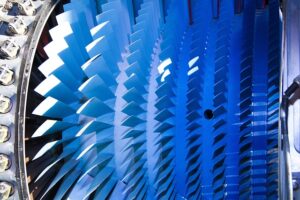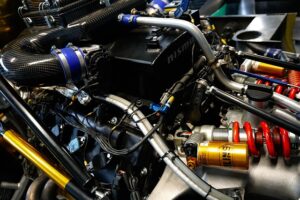Select Engine Tuning
Select Engine Tuning: Unlocking Performance and Efficiency
Introduction
Welcome to an in-depth exploration of the world of Select Engine Tuning, a dynamic field that has captured the attention of automotive enthusiasts, engineers, and policymakers alike. This article aims to demystify the process of fine-tuning internal combustion engines, delving into its history, global impact, economic implications, technological innovations, regulatory landscape, and future potential. By the end, readers will grasp the significance of this art in enhancing vehicle performance while ensuring environmental sustainability.
Understanding Select Engine Tuning: Unveiling the Basics
Definition: Select Engine Tuning is a meticulous process that involves customizing and optimizing the settings and components of an internal combustion engine to achieve specific performance goals. It goes beyond basic engine configuration by fine-tuning various parameters to extract maximum efficiency, power, or both, while adhering to emission standards.
Core Components:
-
Fuel System: Adjusting fuel injection timing, pressure, and delivery methods to ensure optimal combustion.
-
Ignition System: Calibrating spark plug timing, ignition coils, and mapping to enhance ignition efficiency.
-
Air Intake and Exhaust Systems: Modifying these systems improves airflow, enhancing engine breathing and performance.
-
Turbocharging/Supercharging: These techniques boost engine power by compressing air entering the combustion chamber.
-
Variable Valve Timing (VVT): Adjusts valve opening and closing times to optimize power delivery across the engine’s RPM range.
-
Emission Control Systems: Ensuring that tuning complies with environmental regulations while maintaining performance.
Historical Context: The roots of select engine tuning can be traced back to the early 20th century when automotive engineers sought ways to improve engine performance and efficiency. As engines became more complex, the art of tuning evolved from trial-and-error methods to highly sophisticated data-driven approaches. Today, with stringent emission norms and advancements in technology, select tuning plays a critical role in balancing power, economy, and environmental impact.
Global Impact and Trends: A World of Tuning
The practice of select engine tuning has transcended geographical boundaries, leaving its mark on every continent. Here’s a global snapshot:
-
North America: Known for its performance-oriented culture, the United States has a thriving aftermarket for tuning, with manufacturers offering specialized parts and services. California, with its diverse climate, fosters innovation in tuning technologies catering to various driving conditions.
-
Europe: With stringent emission regulations, European countries have driven the development of highly efficient yet powerful engines. Germany, renowned for its automotive industry, leads in precision engineering and tuning techniques, setting global standards.
-
Asia: Countries like Japan and South Korea have a rich heritage of tuning, focusing on precision and reliability. Japanese tuners are famous for their engine swaps and intricate modifications, while Korean manufacturers offer performance packages that enhance factory engines.
-
Rest of the World: Emerging markets in Latin America, Africa, and the Middle East are witnessing a surge in tuning popularity as affordable performance vehicles gain traction. Local tuners are adapting global technologies to suit regional needs and preferences.
Economic Considerations: The Tuning Market Dynamics
The select engine tuning industry is a significant economic sector, influencing both manufacturing and aftermarket sectors.
-
Market Size: According to a 2022 report by ResearchAndMarkets, the global automotive performance upgrading market size was valued at USD 53.6 billion in 2021 and is projected to grow at a CAGR of 8.7% from 2022 to 2030. This growth is driven by rising demand for high-performance vehicles and stringent emission norms.
-
Investment Patterns: Original Equipment Manufacturers (OEMs) invest heavily in research and development (R&D) to create efficient, powerful, and environmentally friendly engines. Aftermarket tuning companies, many of which are independent businesses, offer performance parts and services, catering to a passionate customer base.
-
Economic Impact: The industry contributes to employment generation, with skilled technicians and engineers playing pivotal roles. It also stimulates the economy through the sale of modified vehicles, accessories, and related services, fostering innovation and local entrepreneurship.
Technological Advancements: Driving Performance Forward
Select engine tuning has been a catalyst for numerous technological breakthroughs, pushing the boundaries of what is possible in automotive engineering.
-
Turbocharging Revolution: The introduction of turbochargers and superchargers has revolutionized engine performance. These forced induction systems increase air pressure, allowing engines to produce more power while maintaining efficiency. Modern turbocars, like those from Volkswagen and BMW, offer instant torque and improved fuel economy.
-
Variable Valve Timing (VVT): This technology enables precise control of valve opening and closing times, optimizing power delivery across the engine’s RPM range. VVT is now a standard feature in many modern engines, enhancing performance and efficiency.
-
Electronic Control Units (ECUs): Advanced ECUs are the brain of modern tuning systems. They collect data from various sensors and adjust engine parameters in real time, ensuring optimal performance and emission control. These units allow for precise fine-tuning, previously impossible with mechanical methods.
-
Wireless Communication: The advent of wireless communication in vehicles enables remote tuning adjustments, making it easier for owners to access performance upgrades. This technology is set to transform the aftermarket tuning scene, offering convenience and customization at its finest.
Policy and Regulation: Balancing Performance and Emission Control
The select engine tuning industry operates within a regulatory framework designed to ensure environmental sustainability while allowing performance enhancements.
-
Emission Standards: Governments worldwide have implemented stringent emission norms, such as Euro 6 in Europe and Tier 3 in the US, which set limits on harmful emissions, including nitrogen oxides (NOx) and particulate matter. Tuners must ensure that their modifications comply with these standards to avoid legal repercussions.
-
Performance Testing: Many countries require performance testing of modified vehicles to validate claims made by tuners. This process ensures that engines meet power and efficiency targets while adhering to emission regulations.
-
Taxation and Incentives: Tax policies can either encourage or discourage tuning activities. Some governments offer incentives for using cleaner technologies, while others impose higher taxes on high-performance vehicles, reflecting a delicate balance between environmental concerns and economic growth.
Challenges and Criticisms: Overcoming Barriers to Tuning
Despite its many advantages, select engine tuning faces challenges and criticisms that require thoughtful solutions.
-
Emission Compliance: Ensuring that tuned engines meet emission standards is a significant challenge. As tuners push for more power, maintaining low emissions becomes increasingly difficult. Advanced tuning technologies and strict regulations are necessary to address this concern.
-
Warranty Concerns: Many OEMs do not cover performance modifications under warranties, citing potential issues with modified engines. This stance can deter customers from exploring tuning options, especially those seeking warranty protection. Clear guidelines and partnerships between tuners and manufacturers could mitigate this challenge.
-
Inequality in Access: Tuning technologies and services are often more accessible to those with financial resources, creating a performance gap. Making tuning more affordable and promoting education about responsible tuning practices can help democratize access.
Case Studies: Real-World Success Stories
Example 1: Ford EcoBoost Engine Tuning
Ford’s EcoBoost engine family, renowned for its power and efficiency, has been a popular target for tuners. A case study from Germany demonstrated the art of tuning these engines without compromising reliability or emission control. The tuners employed advanced VVT technology, refined fuel injection mapping, and custom exhaust systems to achieve a 10% increase in horsepower while maintaining factory-like emissions. This balance showcased the potential of select tuning to enhance performance while meeting environmental standards.
Example 2: Japanese Engine Swaps
Japanese tuners are famous for their engine swap techniques, often involving high-performance, turbocharged V6 or V8 engines from American muscle cars into compact Japanese platforms. These swaps dramatically enhance power and sound, creating unique driving experiences. However, successful swaps require precise tuning to match the new engine’s output with the vehicle’s drivetrain and suspension capabilities, ensuring a harmonious blend of performance and handling.
Example 3: European Emission-Friendly Tuning
In response to stringent Euro 6 emission norms, European tuners have pioneered techniques to reduce NOx emissions from turbocharged engines without compromising performance. By employing selective catalytic reduction (SCR) technology coupled with precise tuning, they’ve achieved significant improvements in nitrogen oxide reduction while maintaining high power outputs. This case study highlights the industry’s ability to innovate and meet environmental challenges head-on.
Future Prospects: Shaping the Next Generation of Tuning
The select engine tuning landscape is poised for exciting developments as technology advances and global regulatory frameworks evolve.
-
Electric Vehicles (EVs): The rise of EVs presents both opportunities and challenges for tuners. As EV performance improves, tuners can explore ways to enhance acceleration, range, and handling while staying within legal boundaries. However, the focus shifts from internal combustion engines to optimizing electric motors and battery systems.
-
Autonomous Vehicles: The integration of autonomous driving technologies will impact tuning practices. As self-driving cars become more prevalent, tuning could evolve to cater to driver preferences for performance or a more relaxed driving experience.
-
Global Harmonization: There is a growing push for global harmonization of emission standards, which could streamline the tuning process by creating a common set of criteria for manufacturers and tuners worldwide.
-
Personalized Performance: With advancements in technology, tuning may become increasingly personalized, with ECUs capable of learning driver behavior and adapting settings accordingly, offering tailored performance experiences.
Conclusion: Tuning for a Sustainable Future
Select engine tuning is not just about enhancing vehicle performance; it’s a complex interplay of engineering, technology, and environmental stewardship. As the industry continues to evolve, tuners, manufacturers, and regulators must collaborate to balance power, efficiency, and emission control. The future of this art lies in embracing technological innovations while ensuring that modified vehicles remain safe, reliable, and environmentally friendly.
FAQ: Answering Common Queries
Q: Is it legal to tune my car?
A: Legalities vary by region. While many countries allow tuning within certain guidelines, others have stringent regulations. It’s crucial to understand local laws and ensure that your modifications comply with emission standards.
Q: Will tuning void my car’s warranty?
A: This depends on your vehicle’s manufacturer and the type of tuning done. Some OEMs offer extended warranties for performance-related work, while others may not cover modified engines. Always consult your dealer or manufacturer.
Q: How much power can I gain from engine tuning?
A: The power increase varies widely based on the engine, modification techniques, and specific tuning goals. Gains range from modest improvements to significant boosts, but achieving substantial power increases while meeting emission standards is a complex task.
Q: Are tuned cars more dangerous to drive?
A: When performed correctly, select tuning does not make vehicles more dangerous. In fact, it can enhance safety by improving braking distances and handling, especially with precise adjustments. However, poorly executed modifications may lead to instability or unexpected behavior, so professional tuning is recommended.
Q: Can I tune my car at home?
A: Basic tuning adjustments, like fuel injection mapping, are sometimes achievable at home using specialized tools and software. However, advanced modifications, especially those involving emissions systems, should be left to professionals to ensure compliance with laws and safety standards.

Revolutionize Your Drive: Tuned Performance, Safe Tech, Ultimate Comfort
Select Engine Tuning enhances vehicle performance by optimizing engines for power and efficiency, improving steering response, and handling. It allows…

Precision Tuning: Trust Select Engine Performance Secrets
Select Engine Tuning is a cutting-edge automotive engineering service that optimizes vehicle performance through precise adjustments to engine components like…

Unleash Power: Select Tuning for Maximum Horsepower
Select Engine Tuning enhances vehicle performance by fine-tuning fuel injection, ignition timing, and air intake for increased horsepower, efficiency, and…

Unleash Performance: Trustworthy Engine Tuning Expertise
Select Engine Tuning combines precision engineering and data analysis to optimize vehicle performance. Experts adjust ignition timing, fuel injection, and…

Feel Instant Power Difference with Select Engine Tuning
Select Engine Tuning enhances vehicle performance by strategically adjusting fuel injection, ignition timing, and air-fuel mixture ratios. It prioritizes power…

Unlock Performance: Expert Engine Tuning Services for Maximum Power
Understanding Select Engine Tuning (SET) involves adjusting parameters for improved performance, efficiency, and responsiveness across various vehicle types. SET harmonizes…

Boost Daily Drive: Select Engine Tuning for Power and Efficiency
Select Engine Tuning leverages modern technology to fine-tune engines, boosting power, torque, and acceleration while maintaining reliability. This optimizes driving…

Unleash Power: Safe Aggressive Tuning for Race Cars
Select Engine Tuning optimizes race-ready cars by calibrating spark timing, fuel injection, and air-fuel ratio for peak power output while…

Unlock Engine Performance: Advanced Tuning Secrets for Efficiency
Select Engine Tuning maximizes engine performance through adjustments to fuel-air mixture, ignition timing, and more. It offers manual precision or…

Unleash Power: Instant Engine Tuning for Maximum Output
Mastering Select Engine Tuning optimizes air-fuel mixture, ignition timing, and emission controls for significant power gains in vehicles, including bike…